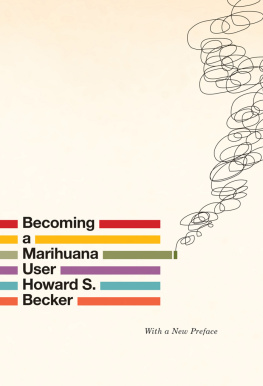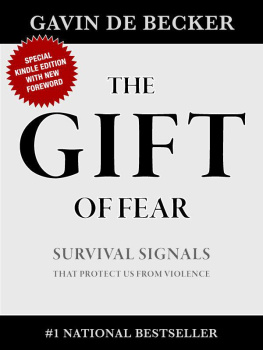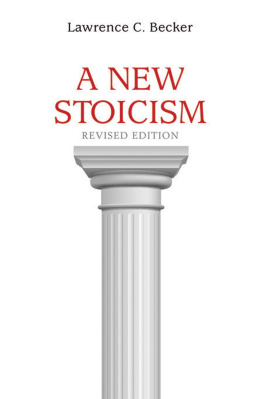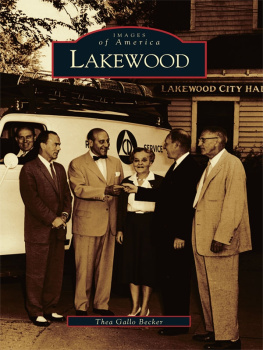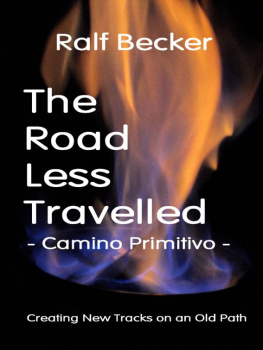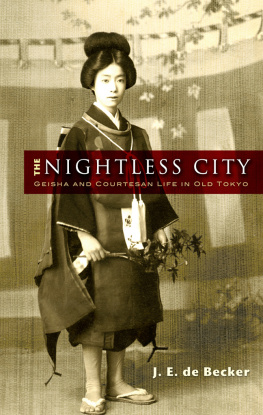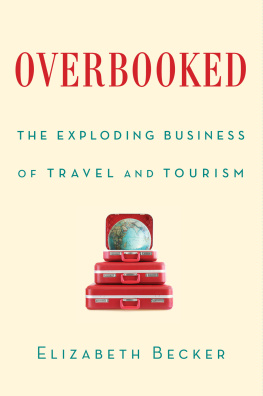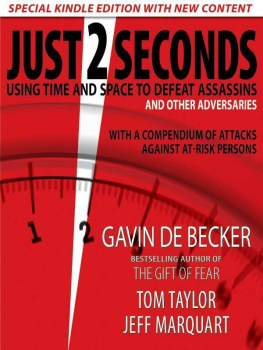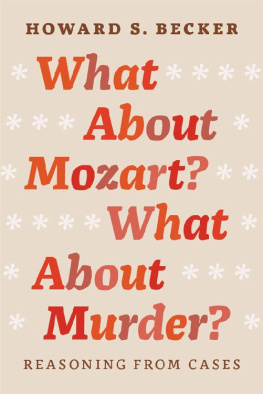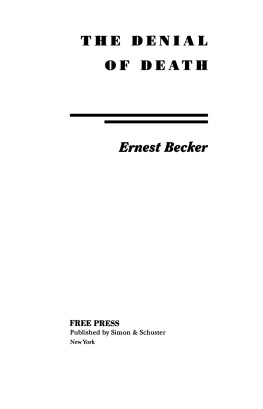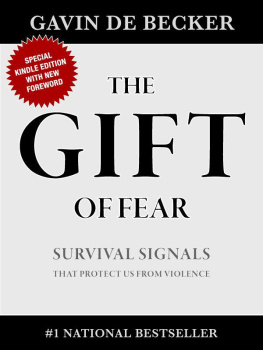Becker - Becoming a Marihuana User
Here you can read online Becker - Becoming a Marihuana User full text of the book (entire story) in english for free. Download pdf and epub, get meaning, cover and reviews about this ebook. City: Chicago, year: 2015, publisher: University of Chicago Press, genre: Religion. Description of the work, (preface) as well as reviews are available. Best literature library LitArk.com created for fans of good reading and offers a wide selection of genres:
Romance novel
Science fiction
Adventure
Detective
Science
History
Home and family
Prose
Art
Politics
Computer
Non-fiction
Religion
Business
Children
Humor
Choose a favorite category and find really read worthwhile books. Enjoy immersion in the world of imagination, feel the emotions of the characters or learn something new for yourself, make an fascinating discovery.
- Book:Becoming a Marihuana User
- Author:
- Publisher:University of Chicago Press
- Genre:
- Year:2015
- City:Chicago
- Rating:3 / 5
- Favourites:Add to favourites
- Your mark:
- 60
- 1
- 2
- 3
- 4
- 5
Becoming a Marihuana User: summary, description and annotation
We offer to read an annotation, description, summary or preface (depends on what the author of the book "Becoming a Marihuana User" wrote himself). If you haven't found the necessary information about the book — write in the comments, we will try to find it.
Becoming a Marihuana User — read online for free the complete book (whole text) full work
Below is the text of the book, divided by pages. System saving the place of the last page read, allows you to conveniently read the book "Becoming a Marihuana User" online for free, without having to search again every time where you left off. Put a bookmark, and you can go to the page where you finished reading at any time.
Font size:
Interval:
Bookmark:
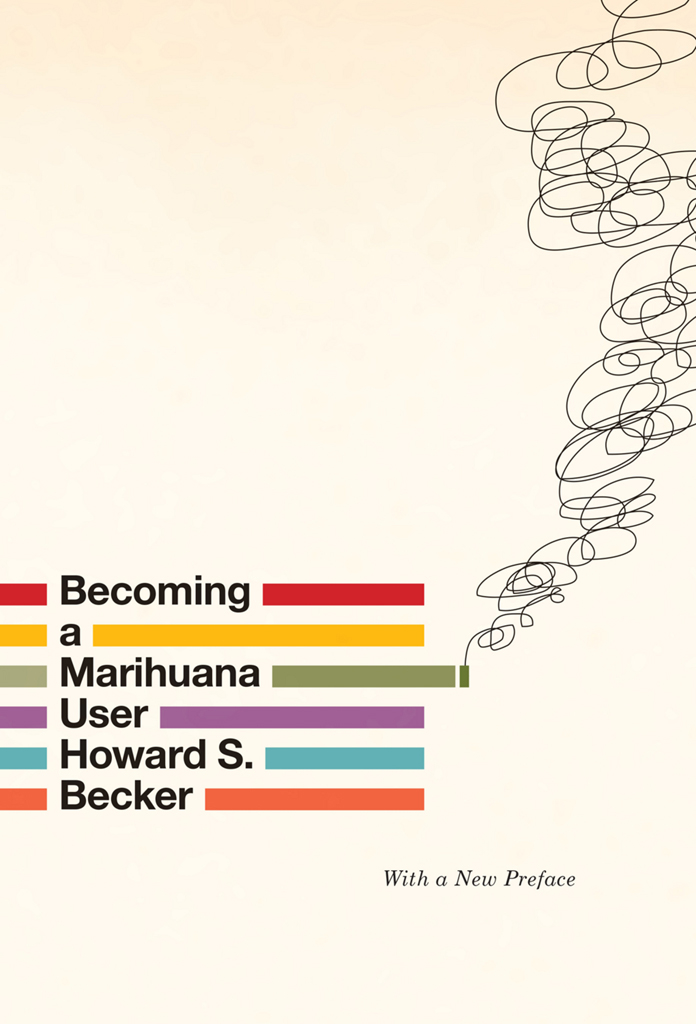
Howard S. Becker
With a New Preface
The University of Chicago Press
Chicago and London
Howard S. Becker is the author of several books, including Writing for Social Scientists, Telling About Society, Tricks of the Trade, and, most recently, What About Mozart? What About Murder? He currently lives and works in San Francisco.
The University of Chicago Press, Chicago 60637
The University of Chicago Press, Ltd., London
2015, 1953 by The University of Chicago
All rights reserved. Published 2015.
Printed in the United States of America
24 23 22 21 20 19 18 17 16 15 1 2 3 4 5
ISBN-13: 978-0-226-33290-1 (paper)
ISBN-13: 978-0-226-33984-9 (e-book)
DOI: 10.7208 / chicago / 9780226339849.001.0001
Library of Congress Cataloging-in-Publication Data
Becker, Howard Saul, 1928 author.
Becoming a marihuana user / Howard S. Becker ; with a new preface.
pages cm
Includes bibliographical references.
ISBN 978-0-226-33290-1 (pbk. : alk. paper)ISBN 978-0-226-33984-9 (ebook) 1. MarijuanaSocial aspects. 2. MarijuanaPhysiological effect. 3. Marijuana abuse. I. Title.
HV5822.M3B395 2015
362.29'5dc23
2015018481
This paper meets the requirements of ANSI / NISO Z39.48-1992 (Permanence of Paper).
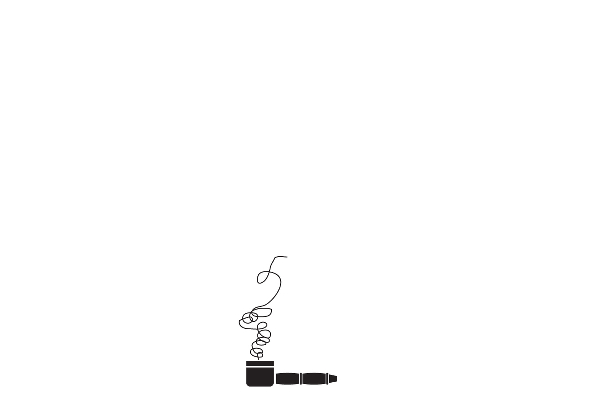
When I wrote Becoming a Marihuana User in the early 1950s, you couldnt use the substance legally anywhere in the United States, although you could certainly use it. And many people did. It wasnt, at the time, a Social Evil which deserved a place in the Social Problems course every sociology department taught. Crime, mental illness, gangs... things like that were social problems. But relatively few people used marijuana and they didnt make a lot of trouble, so despite the efforts of some authorities, no public was crying out to get rid of the practice.
Because no one cared much about it, no government agencies gave scientists money to study it, and there was almost no scientific literature about it. Opiate addiction, on the other hand, had produced the junkie, a social type whose craving for his drug led him to commit crimes. Most people, especially experts, thought junkies activities were caused by moral depravity or mental illness. Alfred Lindesmith, an alumnus of the University of Chicago Sociology Department in the generation preceding mine, wrote Opiate Addiction (1947), a book attributing opiate addiction, instead, to the users learning to think of the drug as something he had to take to avoid seriously unpleasant physical symptoms. The problem lay in the users interpretation of the effects of the drugs withdrawal.
Lindesmiths book gave me a new way to think about marijuana. I knew that marijuana didnt cause any such untoward symptoms as addiction. And I liked the idea of understanding the characteristic getting high experience not as an unmediated pharmacologically induced event, but rather as the result of users interpretations of those effects. They could have interpreted them differently and had a different experience. And I knew where to find the people with whom I could check my ideas out. I was also lucky enough to find a research institute staffed by Chicago-trained sociologists who, while they could not see the importance of such a project, were willing to pay me half-time to pursue it.
So I did a lot of interviews, a certain amount of irregular and unplanned observation, and wrote an article I planned to submit to a sociological journal. No one was much interested in my article. When I presented the paper at a meeting of the Midwest Sociological Association, no more than a dozen people showed up to hear it and the questions they asked when I was through made clear how much it puzzled them. No one could see the point of doing such an odd thing. And I didnt myself see how my findings could be broadened to account for a much wider range of experiences, a job I did later in a paper that ended up as chapter four of What About Mozart? What About Murder?
Fast forward to the mid-1960s. Several things had changed in the interim. Middle-class youth, especially college students, had begun smoking marijuana, and the grown-ups were worried. I no sooner arrived at Northwestern University as a new professor in 1965 than a bunch of NU students were arrested for possession of marijuana and I was in demand as an expert on what had suddenly become a real problem. This development had several consequences no one could have predicted in 1953.
With a much larger demand emerging, and with some of the users now more highly educated, it was almost inevitable that their number would include some agricultural entrepreneurs willing to do a little experimental plant breeding and hybridization and so produce a product with a higher content of tetrahydrocannabinol (THC), the active ingredient in the plant that produced the desired psychedelic effect (the fancier term now applied to getting high).
My article said that you had to learn to be high. The new hybrids, with a higher THC content, produced a stronger experience, one that anyone using the drug in the prescribed way would have trouble not recognizing as something happening. Did that mean my idea was, after all, wrong? Two British sociological researchers clearly thought so:
One man, an experienced drug user, summarised for us one of the key issues. Becker had suggested that novices need to learn to experience the effects. What was his own experience?
Perceive the effects??? Wow (prolonged laughter). The effects were just... WHAM!!!... like a hammer at the back of the head... that guy Becker should change his dealer.
Does that constitute a refutation of my idea? I dont think it does. Heres the reasoning. My original statement hadnt said you wouldnt recognize that something was happening. You might well recognize that you were hungry, but say to yourself, Well, big deal, Ive been hungry before, nothing special about that. It might take someone pointing out that you were eating your third hamburger before you agreed that maybe the drug had, after all, had some effect. So learning to be high doesnt mean just recognizing that something is occurring, though thats part of it. It also means seeing (understanding, connecting, choose your own verb) that this is what the drug ingested does, which is never obvious, because other interpretations are always possible. Some of Lindesmiths interviewees told him that they had been addicted to heroin before but hadnt known it. Didnt they feel the characteristic withdrawal symptoms on that earlier occasion? Yes, they did. But theyd been in an automobile accident, so of course they had pain as they were recovering.
The new increased potency of marijuana taught me that the physiological effects of a drug were important in the interpretive process that produced being high, but that didnt guarantee that everyone would interpret them the same way, no matter how obvious that interpretation might seem to some other folks.
The spread of marijuana smoking to larger and more varied populations produced a second result. More people could interpret the signs smoking dope produced, so the chance that new users would find someone to explain their actions, and the results of those actions, meant that more new users already had a good idea of what to expect, a full complement of definitional aids to what was going to happen. Many people spoke, in those early days, of the development of a drug culture, an elaborate collection of personal habits (e.g., long hair for men), political beliefs (e.g., a vague version of anarchism resulting in universal peace and love), sexual practices and understandings (the precursors of todays custom of getting married only after a year or two of what would have been called not so long ago living in sin), and marijuana (rather than alcohol) as the drug of choice.
Font size:
Interval:
Bookmark:
Similar books «Becoming a Marihuana User»
Look at similar books to Becoming a Marihuana User. We have selected literature similar in name and meaning in the hope of providing readers with more options to find new, interesting, not yet read works.
Discussion, reviews of the book Becoming a Marihuana User and just readers' own opinions. Leave your comments, write what you think about the work, its meaning or the main characters. Specify what exactly you liked and what you didn't like, and why you think so.

